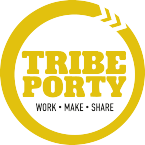Pain is always personal
by Dani Trudeau
It has been a bit of a tough month. I have not been well and in pain and after a load of tests and scans, I still don’t know what is causing it all. That being said, it has taught me a few good things too. Before I sound overly dramatic, I just want to say that I am grateful for my health, albeit not brilliant at this very moment, as for as I know it is nothing serious. Like most experiences outside our norm, it is an opportunity to wake us up and take notice of what we do have.
As darkness helps us see the light, I think pain helps us see the joy. Being in A&E for 8 hours last week and witnessing the pain of others, I felt really sad. I felt sorry for myself but also for others; those alone, the young guy passed out, the elderly woman being ignored. It also showed me how ill prepared we are for loss and vulnerability and how our default coping mechanism is often denial. The systems we live and work in don’t support us very well most of the time. I was just outside the nurses station and it was clear that they work within a system which dictates that patients are moved or discharged by a certain time. They had up to 4 hours to move me out of A&E. Unfortunately, they moved me up to the surgical ward with little communication and I was prepped for surgery without knowing what was happening. I then waited another 4 hours for the consultant to tell me he didn’t know what was going on and to go home.
I understand why these ‘efficient’ systems are implemented and can be useful. Something happens though when the system because more important than the work. It must be far less satisfying for those healthcare workers to work for the system instead of the patient as well. From my perspective, I felt hugely disconnected on a human level. There are parts of ourselves that the conventional health care system isn’t equipped to heal or nourish, adding to our suffering.
There was a moment when I was being rolled out of A&E and up to the surgical op ward when I looked over at the man in the next room, bent over, watery eyes and in obvious pain. I quickly looked away and then thought about hearing the nurse comment about how he knows him (in a “oh yeah I know Dave” kind of way). Did that comment make me less empathetic to his suffering. Did I not want to see his suffering or did I at some level, not even believe it. I felt horrible about this. How can I accept suffering and not get tripped up by my own discomfort around it. In fact, maybe that is what some of the healthcare workers have to do to cope with the daily onslaught of other’s suffering.
I love what palliative care expert, BJ Miller, MD has to say on the topic. “First, let’s all get better at being vulnerable because we are vulnerable. If you’re in the course of a normal life, any one of us is going to be a burden to someone sometime. It’s just not possible to only give care and not need to receive it. Getting more savvy with needing one another is one way to turn down the pain.”
After getting home, it took me a day and some serious self talk to get me out of feeling utterly shite. No one could help me and maybe somehow I was making this all happen or making this up? I had to remind myself that normal scans and tests were a good thing and that I had to just keep checking in with how I felt and asking more questions. I had to remember to trust myself and that the body doesn’t lie. And although most of us don’t know when we are going to die, we are all dying.
The more intimate we get with the idea of dying, the closer we come to folding it into the fabric of our daily lives, the better off we’ll all be, Miller says. Advice on how to die well is really no more than advice on how to live well, with that unavoidable reality in mind.
My takeaways-
- Take care and advocate for yourself
- Connect in to others to find support
- Seize any opportunity for learning, even when it’s not obvious
- Suffering is a teacher of something if you are open to a lesson
- Pain is always personal and those individual lessons are the greatest lessons
- The only way out is through.

